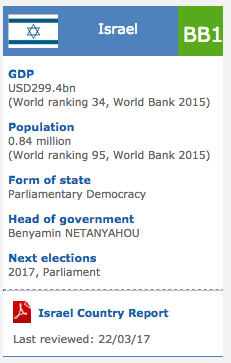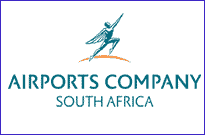-
Africa’s economic growth in 2016 was driven by East Africa
While the continent’s major economies were hit by the fall in commodity prices in 2016, Africa retained its position as the second-fastest growing continent globally recording an average of 2.2% GDP increase, behind only South Asia, according to the African Development Bank Group (AfDB).
Much of Africa’s increase in 2016, AfDB says, was driven by East Africa where several nations recorded “strong performances.” In general, of the continent’s sub-regions, East Africa posted the highest increase rate with 5.3%, led by Ethiopia.
More > -
Africa property offers rich pickings for the brave
Some property pundits believe there are major opportunities for investors or companies on the continent.
While most pundits will acknowledge that the saying “Africa is not for sissies” rings authentic at the same time as it comes to property investment , some commentators believe that there are major opportunities for investors on the continent.
More > -
Bill Gates sees US likely to maintain aid levels for Africa
The US will probably maintain its current levels of aid to Africa despite President Donald Trump’s proposals to slash funding, according to Bill Gates, the world’s richest man.
Trump said in May his government would no longer allocate funding for family planning, a move that has the potential to undermine aid programs in the poorest nations in the world. However, with Congress in control of the budget, it’s unlikely that all cuts proposed by the Trump government will go ahead next year, Gates said in an interview in Dar es Salaam, Tanzania’s commercial capital.
More >
- Key Facts
-
Full name: The Republic of Namibia
Population: 2.3 million (UN, 2011)
Area: 824,292 sq km (318,261 sq miles)
Major languages: English (official), Afrikaans, German, Oshivambo, Herero, Nama
Major religion: Christianity
Life expectancy: 62 years (men), 63 years (women) (UN)
Monetary unit: 1 Namibian dollar = 100 cents
Main exports: Diamonds, copper, gold, zinc, lead, uranium, livestock
GNI per capita: US $4,500 (World Bank, 2010)
Internet domain: .na
International dialling code: +264
-

Africa's Relationship With China Is Ancient History
2017/07/02In 2002 South Africa's Parliament unveiled a digital reproduction of a map - of China, the Middle East and Africa - that some speculated could be the initial map of the African continent. The Da Ming Hun Yi Tu - the Comprehensive Map of the Great Ming Empire - was drawn up around 1389 during the Ming Dynasty, according to historian Hyunhee Park.
-

Climate change laws around the world
2017/05/14There has been a 20-fold increase in the number of global climate change laws since 1997, according to the most comprehensive database of relevant policy and legislation.
The database, produced by the Grantham Research Institute on Climate Change and the Environment and the Sabin Center on Climate Change Law, includes more than 1,200 relevant policies across 164 countries, which account for 95% of global greenhouse gas emissions.
-
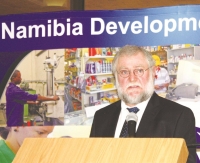
Namibia: Developing Regionally to Compete and Grow
2014/12/25Calle Schlettwein served in a succession of government ministries as permanent secretary - the top civil servant post - since Namibia became independent in 1990. For most of the previous decade, he was an anti-apartheid activist and member of the independence movement Swapo, which has won by overwhelming margins in each of the elections in the succeeding 24 years. In 2010, Schlettwein was appointed to Parliament by President Hifikepunye Lucas Pohamba, who made him deputy finance minister and, in 2012, named him Minister of Trade and Industry.
-
Namibia: Swapo returns, bigger and bolder than ever
2014/12/05It took a little longer than expected for Africa’s initial-ever electronic voting system to deliver the results of the Namibian elections, held on Friday. By Monday afternoon, the final figures for both the presidential and parliamentary polls were from presently on to be announced – not a long delay in a the grand scheme of things, or relative to other elections in the region, but a disappointing start for a system that is supposed to revolutionise voting across the continent.
-
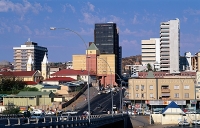
Namibia pins its hopes on uranium and diversification
2013/11/03Namibia has managed to overcome the worst of the world economic slump, while a huge new uranium mine could boost its increase greatly in the next few years. But the country still has plenty to do to tackle its most pressing social issues.
By almost any measure, Namibia is one of Africa’s success stories. The arid south-western country, which is additional than double the size of Germany but has a people of just 2.2 million, is part the continent’s most stable democracies. And it is relatively rich, with a per capita gross domestic product (GDP) of $6000 – about twice the average for the continent.
-

Africa: Making Things Happen at the Bank - 'Not a Talk Shop' - Akin Adesina
2017/07/02Dr. Akinwumi Adesina is focusing on five areas to achieve the African and world goals for a prosperous continent since becoming president of the African Development Bank - Africa's major public financial institution in September 2015. He was a keynote speaker at this month's Corporate Council on Africa's U.S.- Africa Business Summit in Washington D.C. and moderated a lively panel with five African government ministers. He as well received the Gene White Lifetime Succcess Award from the World Child Nutrition Foundation. This week, he was named the 2017 recipient of the World Food Prize, a prestigious honor that includes a $250,000 award. In an interview in Washington, DC, Adesina discussed the Development Bank's ambitious schedule and his vision for attracting the increase capital Africa needs. Posting questions for AllAfrica was Noluthando Crockett-Ntonga.
-

President : Hifikepunye Pohamba
2012/12/21Hifikepunye Lucas Pohamba (born August 18, 1935)is a Namibian politician who has been the second President of Namibia since March 2005. He won the 2004 election overwhelmingly as the candidate of SWAPO, the ruling party, and he was re-elected in the 2009 election. He has as well been the President of SWAPO since November 2007.
Prior to his Presidency, Pohamba served in various ministerial positions, beginning at Namibia's independence in 1990: he was Minister of Home Affairs from 1990 to 1995, Minister of Fisheries from 1995 to 1997, Minister without Portfolio from 1997 to 2000, and Minister of Lands from 2001 to 2005. He was as well Secretary-General of SWAPO from 1997 to 2002 and Vice-President of SWAPO from 2002 to 2007
-
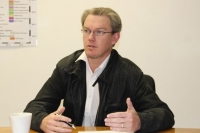
Namibian Economy The challenge of a growing Stock Exchange
2015/12/03Tiaan Bazuin, CEO of the Namibian Stock Exchange, sits down with Globus Vision to outline Namibia’s current economic dynamics, and the challenges of the Stock Exchange.
Where will you be placing your focus regarding policies and specific initiatives moving forward?
Even prior to the election we by presently had something called the Namibian Financial Sector Strategy where the NSX has a very specific role in trying to deepen and diversify the market.
-
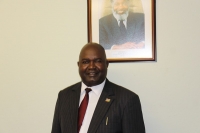
Exceptional Example Of Reconciliation And Unity Peace and stability provide platform for growth
2015/09/18We sit with Penda Ya Ndakolo, Namibia’s Minister of Defense, and discuss the importance of 25 years of independence and the role of the defense force in providing peace and stability. He offers his perspective on further regional integration and the resolution of conflicts through peaceful means, and we as well examine how the ministry is addressing some of the major threats facing the country, inclunding illegal trafficking, poaching and piracy.
-
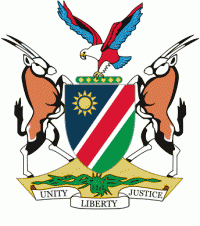
Outlook for 2013-17
2013/10/09The country (Namibia) is situated in Southern Africa, bordering the South Atlantic Ocean, between Angola and South Africa. Namibia has borders with Angola for 1376km, Botswana for 1360km, South Africa for 967km and Zambia for 233km.Land in Namibia is mostly high plateau; Namib Desert along coast; Kalahari Desert in east. Namibian land covers an area of 825418 Km².
-
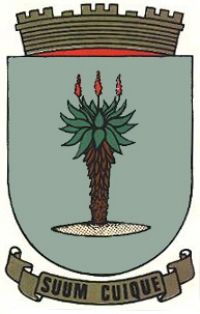
Windhoek
2012/12/07Windhoek is the capital and largest city of the Republic of Namibia. It is located in central Namibia in the Khomas Highland plateau area, at around 1,700 metres (5,600 ft) above sea level. The people of Windhoek in 2011 was 322,500 and grows continually due to an influx from amount over Namibia.
The town developed at the site of a permanent spring known to the indigenous pastoral communities. It developed rapidly after Jonker Afrikaner, Captain of the Orlam settled here in 1840 and built a stone church for his community.
- Namibia News
-
- ECONOMY: Africa’s economic growth in 2016 was driven by East Africa
- REAL ESTATE: Africa property offers rich pickings for the brave
- SOCIAL / CSR: Bill Gates sees US likely to maintain aid levels for Africa
- EVENT: Africa: Graca Challenges Women, Girls to Grab Emerging Opportunities
- PEOPLE: Children on the move from Africa do not first aim to go to Europe, new UNICEF study shows
- HEALTH: WHO lauds Africa’s progress in malaria, HIV control
- Trending Articles
-
- BOTSWANA: Bill Gates sees US likely to maintain aid levels for Africa
- NIGERIA: The city that won't stop growing, Lagos
- EUROPEAN UNION: UK seeks to 'align' with EU on data protection rules
- ANGOLA: Buhari Among African Presidents Who Lack Faith in Own Health Systems
- PAKISTAN: Qatar launches new direct sea route to Pakistan
- BOTSWANA: Africa’s economic growth in 2016 was driven by East Africa




















